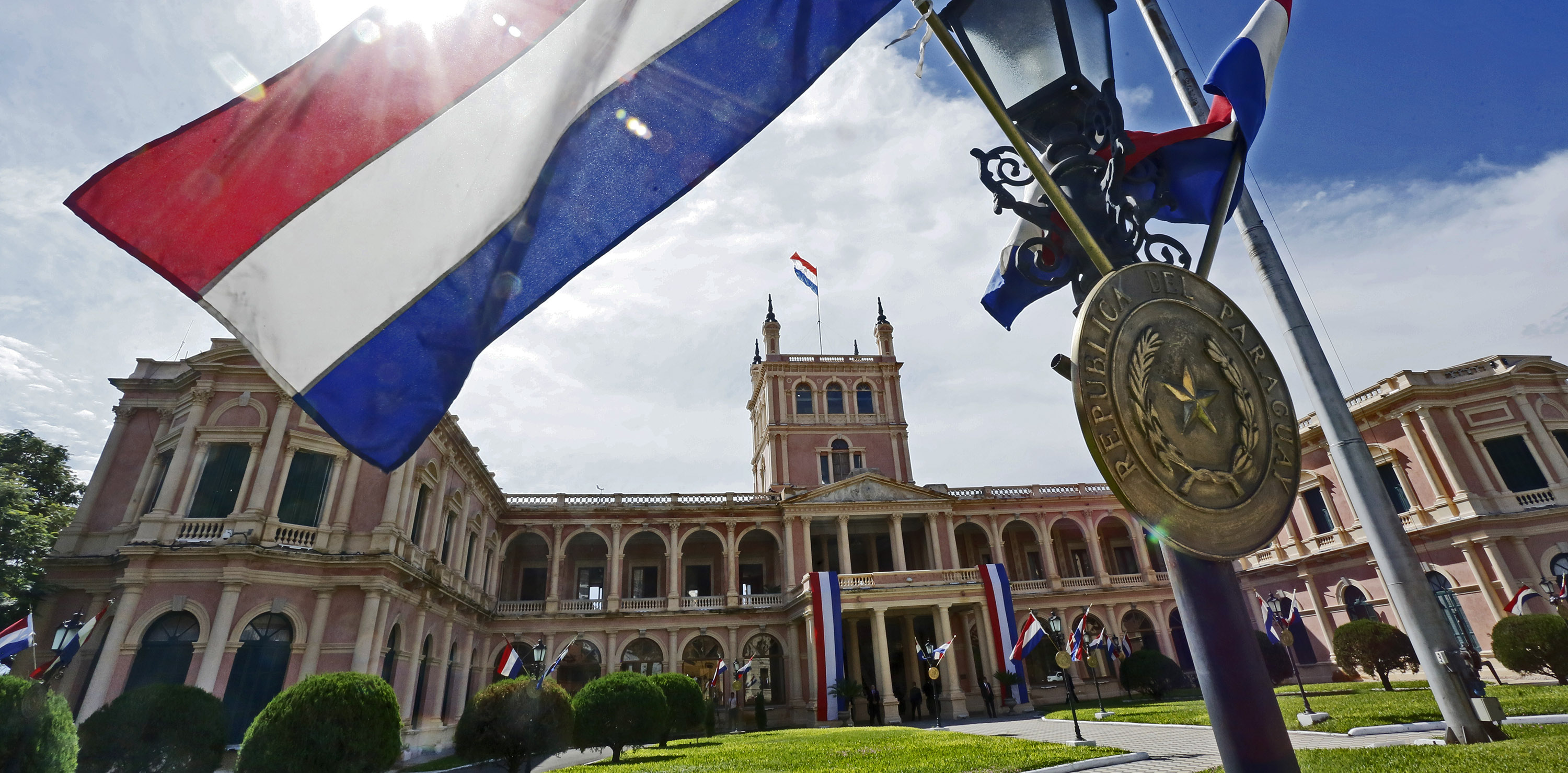
By Peter Tase
The director of Paraguay’s Orchestra of Recycled Instruments knew the magic of music from his early years, when he was seven or eight when he began taking classes with a popular guitarist Felipe Miranda, in his home town of Carapeguá. The story of Hernán Favio Chavez, is marked by a significant determination towards entrepreneurship and ingenuity being used to improve the state of recycling in the country where improvised landfills are seen every corner and deforestation has caused a major impact in the last twenty years. Hernan’s story seems to have come out of his passion and dreams which continue to accompany him since his childhood, while his efforts, training and hard work have finally paid off.
Shortly after being fiddled in musical groups, at the age 13 forming part of the chorus of his city, Hernan taught guitar lessons to his companions paid for by the local school which was included the institute Mariscal Estigarribia. That was how the boy learned to take leadership, discipline and organizational skills.
Already integrated within the musicians’ network for 15 years and directed the children’s choir of the Cathedral of Carapeguá. According to the newspaper ABC COLOR in Paraguay, Hernán “later entered the seminary, where he used the knowledge of his religious teachers, and he was the one who enriched their texts with music and rhythm. Finally, Chavez decided to lead the road and study theology; Philosophy at the Catholic University of Asunción and received an engineering degree in human ecology at the National University of Asunción. He pursued this career and went to work as an environmental technician at the recycling lots around Carapeguá.”
But music for him, it was just an additional, complementary engagement and pleasant activity. “I always worked formally somewhere else,” he says. Thus, taught philosophy at several schools in Asunción, Fernando de la Mora and Luque; taught Agricultural Administration in Carapeguá and served as an administrator of the municipality’s plant nursery in that city. Chavez came to the humble area of Cateura recycling responsible for environmental education as part of a Prociclaproject. From there, something new and important was about to happen which will lead him to a completely new direction.
According to the local community in Carapeguá”When Chavez worked at the landfill he began teaching music to children. First taught those children of the working staff in the waste and garbage processing plant; then opened to the community and there began teaching music history in that place, in that context.”
From this socio economic situation, surged the idea to create instruments from recycled materials and Hernán was closer than ever to make this happen. He adds: “For us it was easy because we took music lessons at the same place where we worked in the processing plant solid waste. Just had to reach out and grab tons of recyclable materials arriving daily.”
The first instruments that emerged were the percussion and some pan flutes, tube instruments and those with a vibrating flow of air; a humble violin, made from an old steel colander and a water pipe. “He used to show that, rather like instrument simulation. He brought these instruments to school, to educate people about the importance of recycling.”
The surprise for him was when these sketched instruments’sounds began to emerge. From there, with the collaboration of other colleagues such as Nicolás Gómez, began experimenting with new materials for better quality. An inspiration for Chávez was the instruments used by the popular group of Les Luthiers, Argentina who used similar instruments for presentations. These instruments made of alternative materials, says Chavez – “not necessarily waste, but alternative or recyclables,” and they served as an example to make something similar in Paraguay not only for teaching but also for playing in public.
“That inspired me to investigate further” adds Chavez,“At that time there were only few places where to go, and most of the instruments were the result of our own ingenuity,” says the Paraguayan musician without any fanfare. Now these teenagers have made guitars, violins, drums and saxophones and trombones with recycled materials while using old hydraulic pipes. At a time when their school was at a difficult economic time, they decided to establish the orchestra in order to secure an additional avenue of resources for their school in Carapeguá.
Now hundreds of kids and teenagers are playing their instruments, traveling and visiting the world. The school of music is open to every student and they even are allowed to travel abroad. Thus, the Paraguayan team became ingenious with pioneering members, creating recycled musical instruments and used them by children and young people in major festivals and performances in more than 25 countries worldwide. Only a month ago this team of young musicians was nominated by the President of Paraguay as the Roving Ambassadors of their country, with their instruments traveling in Europe and North America.
Another unique example that encompasses this entrepreneurial spirit is Elsa Zaldívar who ran a rural development program in the department of Caaguazú, a region where deforestation has left its irreparable marks for more than four decades. Her work quickly had a positive impact towards improving the women’ lives; Elsa begun her work with local woman to “begin a project to construct toilets, and built stoves for them to cook on. It was impressive how these simple acts changed the women’s lives. And making them ‘feel like people with dignity.’” This was the result of having a bathroom inside or closer to the house and not 100 meters away.Another project that could improve the lives of rural woman was by increasing their earning capacity. She began to work on loofah, a plant that grows easily in the region, but which had fallen out of favor. She persuaded local women in Caaguazú to consider it as a means of generating income. When harvested before it completely ripens, loofah can be eaten.
According to the Rolex Awards for Enterprise official page “Zaldívar’s women let the plant ripen and dry out, then process it until only a fibrous sponge remained. Their hard work, along with the ecological methods they used and the quality of the fiber they produced, gave the product a competitive advantage over plantation-grown loofahs from China and other countries. The women organized themselves in a cooperative and sold their loofah sponges as cosmetic products. They used loofah to manufacture mats, slippers, insoles and a variety of other products that were exported to markets as far away as Europe. The women’s earnings grew, and the successful enterprise drew praise from environmentalists and others. Eventually it even won the respect of the local men who had initially laughed at the project as a women’s idea that had no chance of succeeding.” It is the spirit of enterprise of Elsa Zaldivar and Hernan Chavez who make Paraguay the sole nation in South America for coming up with genuine ideas and projects that significantly contribute towards eradicating poverty and promoting free enterprise in a country where it is unusual for humble farmers to become independent from local governments who happen to lack vision, as well as the spirit of initiative and devotion in public service. Such farmers have learned to establish themselves as future entrepreneurs for the betterment of their families while using agricultural products that were ignored previously. On the other hand young musicians are eager to use recycling materials and products for their artistic goals and generate an additional income for their school and local community.




